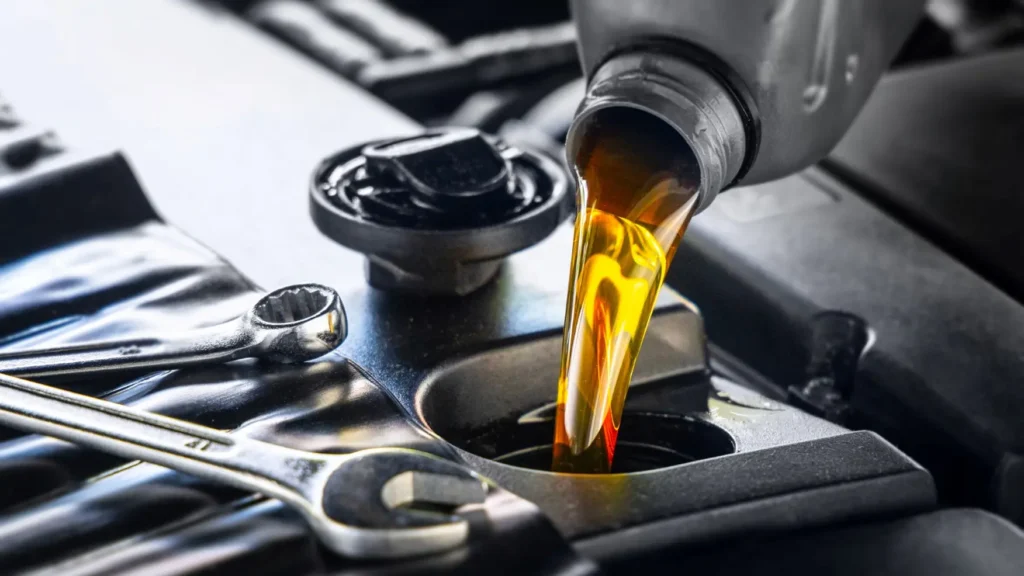Regular oil changes are essential to keeping your car’s engine running smoothly, but many drivers face a common dilemma: Should you change your own oil or leave it to the professionals? While DIY oil changes can save money and offer a sense of accomplishment, they require time, tools, and know-how. In this post, we’ll explore the pros and cons of changing your own oil, what you need to get started, and when it might be best to seek professional help.
Table of Contents
Benefits of Changing Your Own Oil
Should you change your own oil to save money? Absolutely! One of the primary reasons people opt for DIY oil changes is cost savings. Purchasing the oil and filter yourself is often cheaper than paying for a full-service oil change at a shop. Additionally, changing your own oil allows you to ensure high-quality products are used for your car.
Convenience is another factor. Instead of scheduling an appointment and waiting at an auto shop, you can change the oil at your own pace, often in under an hour.
Finally, there’s the satisfaction of taking control of your vehicle’s maintenance. For car enthusiasts or those who enjoy hands-on projects, answering “yes” to the question Should you change your own oil can lead to a rewarding experience.
What You’ll Need to Change Your Own Oil
Before deciding, Should you change your own oil, it’s crucial to ensure you have the necessary tools and knowledge. Here’s what you’ll need:
- Oil and Filter – Check your owner’s manual for the recommended oil type and filter size.
- Wrench and Oil Filter Tool – To remove the oil drain plug and filter.
- Oil Pan – For catching the old oil.
- Gloves and Funnel – For cleanliness and precision.
Make sure you understand your vehicle’s oil change process. If you’re asking, Should you change your own oil and feel unsure, it’s wise to consult resources like your car manual or online tutorials.
Challenges of Changing Your Own Oil
While DIY oil changes have benefits, they’re not without challenges. So, should you change your own oil if you’re short on time? Probably not. Oil changes can become messy and time-consuming, especially for beginners.
There’s also the issue of proper disposal. Used motor oil is hazardous to the environment, so you’ll need to take it to a recycling center. If you’re not confident in handling these responsibilities, you might reconsider whether should you change your own oil is the right choice.

When to Leave It to the Professionals
Not everyone has the time, tools, or interest to perform their own car maintenance. So, should you change your own oil if you’re inexperienced? In such cases, the answer might be no. Professional mechanics have the expertise to quickly and correctly perform an oil change.
Additionally, if your car has a complicated design that makes accessing the oil filter difficult, it’s worth paying a professional. Sometimes, the peace of mind that comes with professional work outweighs the potential savings of a DIY job.
Final Thoughts
Should you change your own oil? The answer depends on your comfort level, tools, and time availability. DIY oil changes can be a cost-effective and fulfilling option for car owners who are confident in their skills. However, for those who value convenience or lack experience, leaving it to the professionals is often the better choice.
Whether you decide to roll up your sleeves or book an appointment at your local auto shop, the key is regular maintenance to keep your vehicle running smoothly. By carefully weighing the pros and cons, you’ll know exactly when to answer “yes” to the question Should you change your own oil.
Related Post:
Before diving into your oil change, it’s crucial to know how to check your oil levels accurately. Understanding the readings on your dipstick ensures you’re starting with the right amount of oil. If you’re unsure how to do this, check out our guide: 7 Steps on How to Read an Oil Dipstick. It’s a quick and simple process that every car owner should master!


Leave a Reply